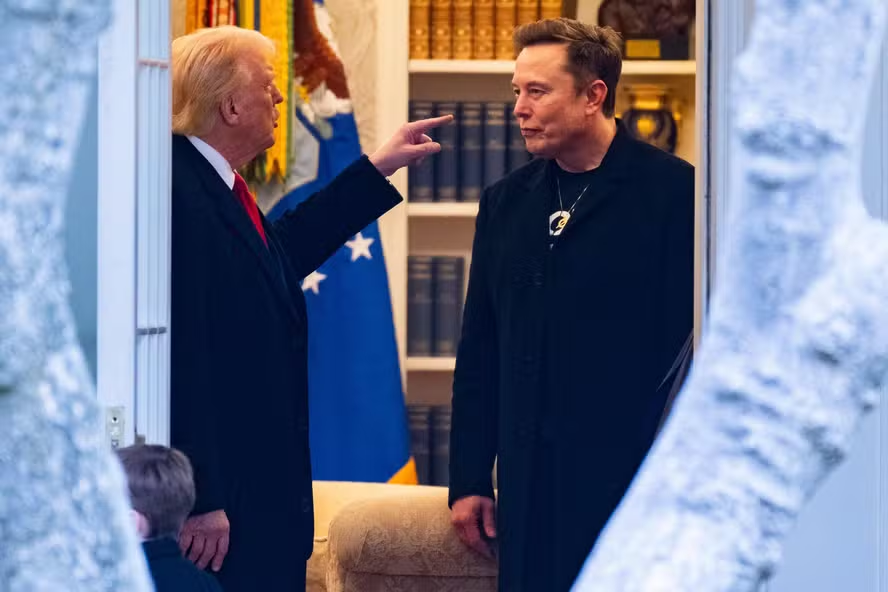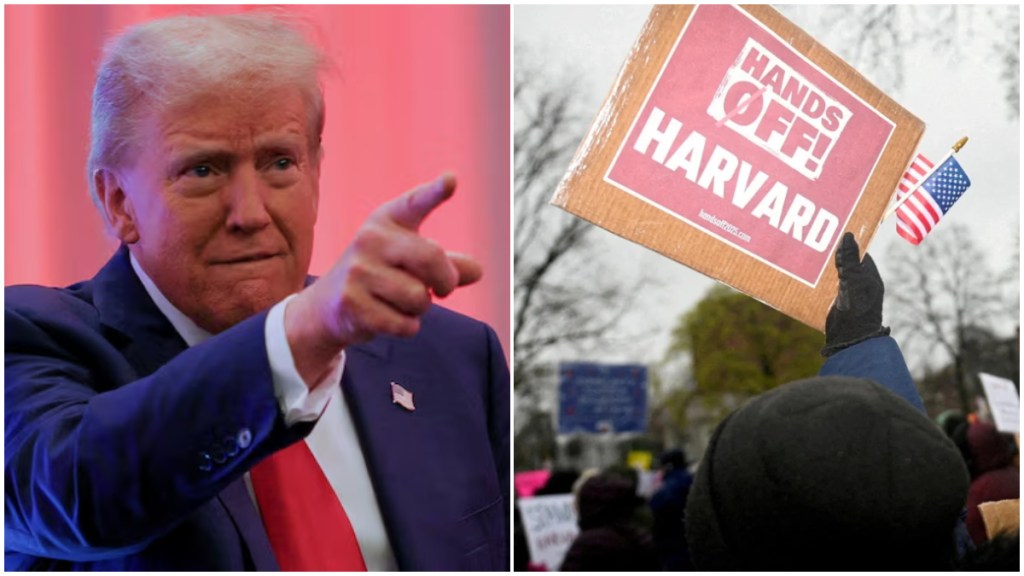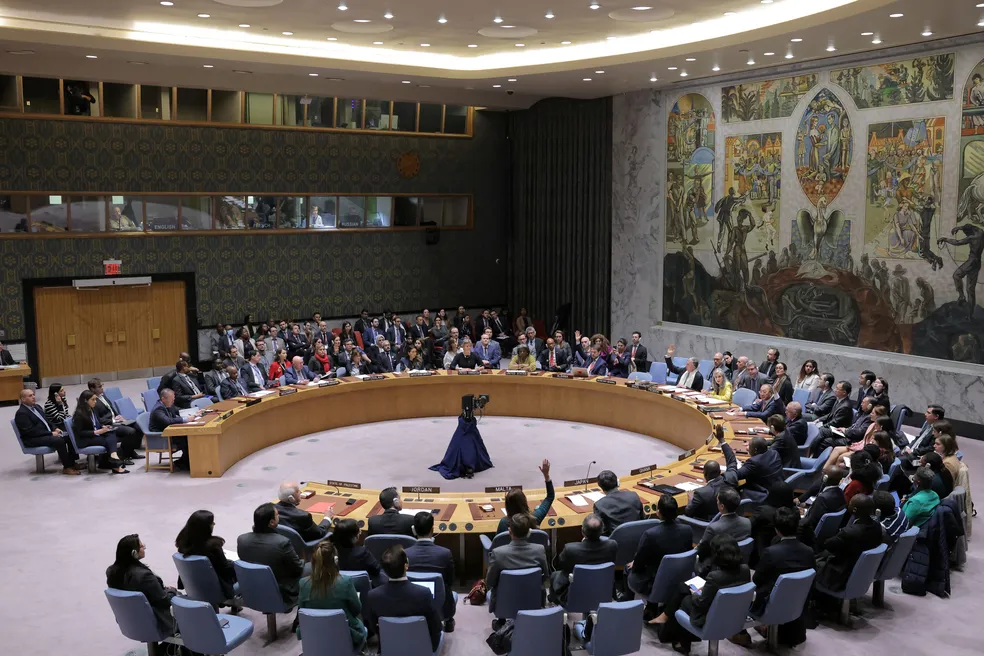On July 9, 2011, the Sudan People’s Liberation Army signed the Naivasha Agreement in Kenya, making South Sudan the youngest country in the world. As they did in many other colonization processes across Africa, the British divided the population into social constructs called ethnicities, a fruitful strategy if one seeks to prevent national unity and revolt. Once the ethnicities and their conflicts were established, the weak institutions and generational traumas were left to perpetuate them. In 1956, Sudan gained independence, but the ethnic groups in the south continued to suffer from the lack of positive public policy. Thus, the independence of the south brought hope.
The struggle for independence was won, but now a country needed to be built, a different struggle. The strategy conceived, since erasing such deeply rooted social constructs is a Herculean task, was to create a democratic system of proportional opportunity among the ethnicities, expressed in their political representation. Describing it another way, the political system of the young country proposed a Dinka ethnicity president and five vice-presidents, who would come from the Nuer (2), Azande, Shilluk, and the Dinka ethnic group itself. The idea was to divide power in such a way that all ethnicities would be represented according to the size of their respective populations.
The years passed, and the expectation of a democratic and fair system remained just that—expectation. Its president, Salva Kiir Mayardit, had remained in power since 2011, centralizing power in himself, his political faction, and his ethnicity. In February, Kiir dismissed the governor Alfred Futuyo and the Minister of Health Yolanda Awel Deng—both allies of Vice President Riek Machar—in clear violation of the 2018 peace agreement.
Oil extraction resumed in January, reigniting the opportunity for economic growth, but also reigniting old divisions, as Kiir was allegedly preparing to centralize the dividends as well. Recently, Puot Kang Chol—the Minister of Petroleum—his family, and his bodyguards were detained by Kiir’s government, a move that culminated in soldiers surrounding the house of Vice President Riek Machar in the capital, Juba. Both Kang and Machar are from the Nuer ethnicity.
The actions of the government are justified by Kiir, who claims that the White Army—a Nuer paramilitary organization—took control of Nasir, one of the country’s largest cities, from his army. The White Army was supposed to have joined the national army, as outlined in the 2018 peace agreement, but negotiations never continued.
When audiences learn about Kiir’s government, it’s easy to see its autocratic (dictatorial) aspect. Kiir centralizes power in himself, his faction, and his ethnicity. He seeks to cult the image of himself and acts violently to suppress opposition. He centralizes the economy and personalizes the state machinery. His decisions are not based on the electoral cycle or public will, and are generally implemented without the support of technocrats, bureaucrats, or experts. Kiir is a clear example of a dictator.
In our march against the unknown, we sometimes employ dichotomies like “good-evil”, “ugly-beautiful”, “left-right”, or “dictatorship-democracy”. These simplifications of reality serve a didactic purpose, making sense of a confusing world. What is understood is measured, anticipated, and shaped. Natural to the human mind and its search for patterns to economize energy and discomfort, mental shortcuts—these simplifications, also called heuristics—turn the unknown into something known.
Still, sometimes heuristics produce errors of interpretation, as reality doesn’t always fit neatly into such well-defined dichotomies. Nobel-winning author Han Kang’s books are examples that beauty can emerge from something ugly, like suffering, for example. In another instance, “center” or “center-left” parties show that there are more options than just “right-left”. As Shakespeare proposed, “There are more things in heaven and earth than are dreamt of in your philosophy”.
Kiir is a classic example of a dictator who easily fits into our heuristics. But could we perceive the dictatorial threat if it were veiled? What if a leader, elected in a democratic way, began a cult of personality—perhaps as the hero of the nation, the one who would free the people from a rotten system? And what if this leader openly and publicly questioned the role of independent media, challenging their legitimacy, hindering their work, and even threatening them, but without shutting down their activities? And what if this leader sold the idea that the country’s woes were the fault of “them”, the other, who needs to be persecuted, perhaps even shot, but without proposing a one-party system? And what if this leader argued that persecuting minorities is a democratic act, since “in democracies, the minority must bow to the majority” (something any respected political scientist would understand as a corruption of the democratic system, which should protect the vulnerable)?
There could be many more examples, but the idea is clear. When democratically elected leaders empty the meaning and power of institutions without destroying them, and maintain a formal democracy, eroding its real applications, they may pass unnoticed as dictators. The strategy is refined, but it’s becoming more and more common.
In a recent report by Varieties of Democracy (V-Dem), a research institute monitoring the state of democracy worldwide, nearly ¾ of the world’s population lives under autocratic regimes. V-Dem’s reports are composed of contributions from almost 4,000 experts who analyze 600 attributes in each country, and it was concluded that, for the first time since 1978, there are more autocracies than democracies in the world. In other words, the democratic decline rate is 67%, which is concerning.
One reason may be that the heuristic contemplating the “democracy-dictatorship” dichotomy doesn’t leave space for the various types of democracy and dictatorship that exist. As Geddes, Wright, Kendall-Taylor, and Frantz—experts in dictatorial regimes—propose, the Cold War period was marked by the dichotomy of dictatorial “communist parties-military governments”. Once the Berlin Wall fell, and with it communism, dictatorships entered a post-ideological period. It is in this post-ideological period that many personalist dictatorships—currently the most common and growing type of dictatorship—flourished.
Personalist dictatorships are those like Kiir’s, the type that is clear and unequivocally dictatorial. This type contrasts with monarchical, oligarchic (where power doesn’t emanate from the people, but from an elite, usually in a hereditary manner), military (where power emanates from the armed forces), party-based (where power is concentrated not by an individual, but by a party), and other types. Not all are as clearly dictatorial; after all, if there is turnover (the technical term for electoral cycles between different rulers), elections, three branches of government, media, etc., how can they not be a democracy?
That is the question produced by the “democracy-dictatorship” heuristic. But in a post-ideological period, the turnover may be among members of the same party, generally pre-approved by previous leaders, or even for show. This is the case in Putin’s Russia, where he sometimes becomes prime minister, sometimes president, allowing space for other candidates while not truly relinquishing power. This was the case with Brazil’s military dictatorship, with five dictators alternating power. Elections may not be free or reliable, as allegedly in Serbia under Vučić, where recounts and fraud allegations are commonly reported by trusted media outlets. The three branches of government may be co-opted by the leader, existing only on paper, as in communist China. The media may be centralized and co-opted by the government, also as in communist China.
Many dictatorships, even personalist ones, started with democratic and free elections. Their leaders slowly emptied their institutions, instilled the “us against them” mentality, co-opted the branches of power, centralized decisions, and gradually turned their democracies into dictatorships until they were no longer democracies. Some countries are more susceptible to autocratization—becoming dictatorships slowly—than others. Countries with a recent dictatorial past—like Brazil or the former Soviet republics—tend to have many “institutional remnants” from those dictatorships, which can be coopted as channels for autocratization. Countries with many parties and/or a fragmented party system are usually more easily autocratized. In fact, it’s common for dictators to emerge from recently created parties, usually completely new or formed by the union of old parties, as is the case with Putin’s “United Russia” or Hugo Chávez’s “Fifth Republic Movement”. Finally, polarized countries (“us against them”) are also more prone to autocratization.
This is where two responses usually emerge: the first is realizing that Brazil fits practically all the requirements of a democracy susceptible to autocratization, and therefore accepting it by proposing that, despite limiting individual freedoms, dictatorships are secure, and in places like South Sudan or Brazil, with high crime rates, security is a public good of value. The second is realizing that Brazil fits practically all the requirements of a democracy susceptible to autocratization and asking how to stop this process, perhaps even halt it. Let’s address them!
Are dictatorships safer?
On an international level, dictatorships tend to execute more aggressive and risky foreign policies. They are more likely to invest in nuclear weapons – which would alert neighboring countries and major powers. They are more likely to attack and/or fight democracies, or even initiate interstate conflicts. On an economic level, the vast majority of dictatorships show subpar development compared to democracies – higher prices, fewer jobs, etc. They tend to have clearer hierarchies – and social inequality causes violence. Dictators tend to value loyalty over competence – or they don’t remain in power. Therefore, dictatorships tend to be more corrupt and have less accurate information. The lack of checks and balances makes erratic and uncertain policies more likely, destabilizing markets, investments, and military and political alliances. The very example of South Sudan already indicates that dictatorships are not safer, as the country ranks 161st out of 163 countries on the Global Peace Index, which measures insecurity in countries. The last positions are occupied by Sudan and Yemen, which also suffer from authoritarian regimes.
If any dictatorship or democracy in the process of autocratization seems safe, it is probably a fabricated vision or, sometimes, simply due to lack of transparency. Let’s examine another commonly cited example of a democracy in autocratization that seems safe: El Salvador.
In 2024, the self-proclaimed “coolest dictator in the world”, Nayib Bukele, reached what is called a supermajority in the Congress of El Salvador. Bukele controls 54 out of 60 seats in the house, meaning that almost any bill he wants to pass will become law. El Salvador, like many other small countries in Central America, had been plagued for decades by gang violence. Once in power, Bukele reduced homicides by up to 50%. He empowered the police in unusual ways in the country. At first, Bukele seems to have created a safe dictatorship. But only at first.
The imprisonments promoted by Bukele denied constitutional rights to the incarcerated. Thousands of innocents were imprisoned, with numerous reports of torture and deaths in prison. The country imprisoned 2% of the population, about 10% of the country’s young male population. Folha de São Paulo’s journalist Ana Luiza Albuquerque recounts the case of Salvadoran taxi driver José Antonio, who was imprisoned for years by Bukele’s police, with unproven charges and no contact with his family, who relies on his work as a taxi driver for a living.
In 2020, El Faro, a Salvadoran newspaper, found evidence – later confirmed by an investigation by the Attorney General’s Office – that Bukele had made an agreement with the MS-13 (possibly the largest gang in the country). Bukele government members met with imprisoned MS-13 members and outlined the terms of the agreement between the government and the criminal faction. On the government side, benefits included the transfer of violent prisoners, the sale of pizza in prisons, and financial incentives – money – for MS-13 and Barrio 18 (another gang in the country). In return, MS-13 would support Bukele’s party, “Nuevas Ideas”, and maintain control over gang violence.
Despite the immorality and illegality of these actions, there are still those who support him, proposing the concept of “Dirty Hands”. A famous concept in Political Science, Dirty Hands suggests that when representing a large number of people – as in the case of a ruler – morality should be suspended, at least to some degree, or that there is a distinct moral system to judge rulers, since measures considered “immoral” or even “illegal” may be necessary. The detail is that Bukele’s measures were not just illegal or immoral, they were also ineffective.
Bukele drastically reduced homicide rates in the country, but not for long. Between March 25 and 27, 2022, MS-13 killed 87 people, most of whom had no ties to any gang. The attack was retaliation against the police, who had imprisoned MS-13 leaders and failed to comply with their ultimatum to release them within 72 hours. On March 27, the Congress approved a state of emergency, granting Bukele unrestricted powers.
Security is a product of strong institutions and social and economic equity. It is created with the rule of law, not without it. So let’s deal with the second response, which acknowledges that Brazil meets nearly all the criteria of a democracy susceptible to autocratization and asks how to halt this process.
How to halt the autocratization of democracies?
The first and most obvious action is to vote and encourage others to vote, even those who fundamentally disagree with you. Voting ensures that your interests will be represented, as the primary goal of any leader is to stay in power, and to do so, they need to deliver something to those who support them. If a specific group is large and active enough to keep the leader in power, there is no reason for the leader to spend their limited resources on other groups when just that one group is enough to keep them in power. That’s why, for example, the EU-Mercosur agreement faces difficulties, as agricultural producers in France vote in large numbers and do not want to compete with agricultural products from Mercosur. Therefore, vote, and lobby so that the groups you belong to also vote. If various groups with different interests are vocal and active in elections, leaders will need to address multiple groups – thus facilitating democracy.
When voting, make sure to exclude from your ballot any candidate who questions the role of independent media, attacks journalists, casts doubt on the electoral process without evidence, fosters political polarization, relativizes the importance of democracy, advocates dismantling or hollowing out the three branches of government, or glorifies a dictatorial past. In other words, as Karl Popper describes, democracy tolerates everything except the intolerant.
Consume and share information from reliable sources. In a world where artificial intelligence is so advanced that it can create convincing fake videos and photos, getting information from social media platforms like WhatsApp, Facebook, Instagram, or X (formerly Twitter) is very dangerous. Prioritize information from trusted sources, such as national and international newspapers. If you receive interesting information from unreliable sources, check the publication date (as real information may be taken out of context) and research the information on other sources. If it cannot be found, it is probably false. Some online platforms help verify information, like LUPA and AOS FATOS.
Those who disagree with you usually have important points that need to be heard. Politics is not and cannot be like supporting a football team. Therefore, if you prefer a specific candidate or party, be critical when analyzing their actions, proposals, and speeches, just as you are with their opponents. Consider the criticisms made about them and also criticize if “your candidate” does something that doesn’t seem right.
Unfortunately, much of what can be done to halt the autocratization of a democracy is collective, not individual. Still, you and I have civic responsibility, and not being able to solve everything doesn’t mean not trying to solve anything.
References
https://www.dw.com/en/south-sudan-can-oil-production-save-the-economy/a-71345060
https://www.v-dem.net/publications/democracy-reports
https://www.gzeromedia.com/news/watching/el-salvadors-president-gets-super-powers



